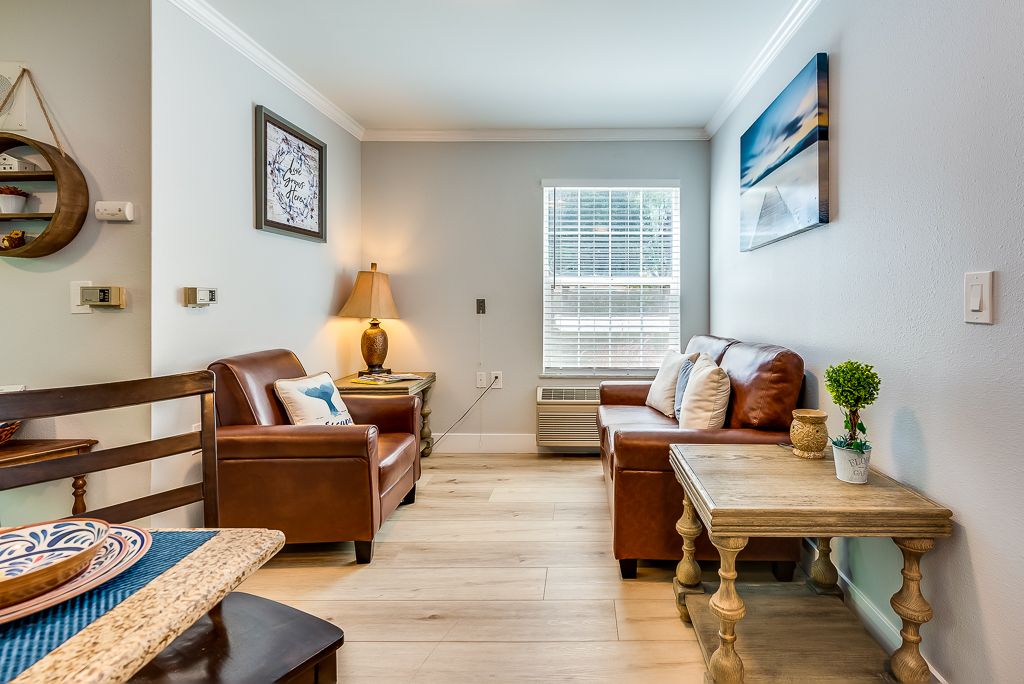Why Personalized Memory Care is Important for Alzheimer’s Patients
Why Personalized Memory Care is Important for Alzheimer’s Patients
Blog Article
Everything About Memory Treatment Solutions: Why Little Memory Care Homes Are an Excellent Selection
Memory treatment solutions play an essential role in supporting people with Alzheimer's and mental deterioration. Little memory treatment homes stick out for their individualized technique and intimate setting. With lower staff-to-resident ratios, these homes promote more powerful links and customized treatment. Locals take advantage of improved social interactions and a secure environment. As households discover alternatives, understanding the one-of-a-kind advantages of tiny memory care homes ends up being essential. What variables should be considered when choosing the right home?
Recognizing Memory Care Provider
While numerous may recognize with basic senior treatment options, recognizing memory care services is essential for family members facing the obstacles of cognitive decline. Memory care especially deals with people with conditions such as Alzheimer's condition and other kinds of mental deterioration. These solutions provide an organized environment that concentrates on boosting the high quality of life for locals through specialized treatment and support.Memory care facilities are made to ensure safety and security, frequently including safeguarded settings to stop wandering. Trained personnel participants are available all the time to aid with everyday tasks, medicine management, and personal treatment. Furthermore, memory care programs commonly consist of cognitive excitement tasks, tailored to engage locals and advertise mental well-being. Households can profit from recognizing these solutions, as they allow notified decisions concerning their liked ones' treatment, guaranteeing that their specific demands and preferences are addressed in a compassionate and encouraging manner.
The Benefits of Tiny Memory Care Homes
Small memory treatment homes supply distinct advantages that can substantially improve the lifestyle for citizens with cognitive impairments. One substantial advantage is the intimate atmosphere, which permits tailored interactions amongst staff and locals. This smaller setup fosters purposeful connections, lowering sensations of seclusion and stress and anxiety usually experienced by individuals with memory issues.Additionally, the reduced staff-to-resident proportion in little memory treatment homes enables caretakers to give more alert guidance and support. This approach not just improves safety and security however also advertises a feeling of security for the residents.Moreover, small memory treatment homes can adapt swiftly to the one-of-a-kind demands and choices of each local, enabling an extra homelike ambience. Such a setting can encourage social involvement and involvement in activities, inevitably enriching the everyday experiences of those coping with cognitive impairments.
Personalized Treatment Plans for Homeowners
Personalized treatment plans are crucial in memory care homes, as they deal with the unique demands and preferences of each local. These plans start with complete evaluations performed by skilled experts, who review cognitive abilities, case history, and personal rate of interests. This tailored strategy assurances that care is not only efficient yet also respectful of each person's dignity and autonomy.Moreover, customized treatment plans are flexible, enabling changes as residents' requirements advance over time. This versatility fosters a complacency and knowledge, which is vital for people coping with memory obstacles. Caregivers are trained to execute these plans constantly, giving assistance that aligns with the residents' routines and preferences.Ultimately, personalized care plans improve the lifestyle for homeowners by advertising self-reliance, wellness, and engagement, making them an essential aspect of memory care services in little memory treatment homes.
Developing a Home-Like Atmosphere
Developing a home-like atmosphere is important for fostering convenience and experience in memory care settings, as it greatly impacts residents' emotional health. Little memory care homes frequently focus on individualized touches, such as warm shade schemes, family members pictures, and acquainted furniture arrangements, which assist residents feel more comfortable. Incorporating elements similar to a typical home, like relaxing home and common areas, motivates a feeling of belonging.Moreover, utilizing natural light and outside rooms can enhance the environment, advertising leisure and serenity. Team member play a considerable duty in maintaining this atmosphere by involving with locals in a thoughtful way, treating them like family members. Routine activities, such as cooking or horticulture, can also contribute to a home-like feel, using possibilities for locals to join purposeful experiences. Overall, producing a nurturing atmosphere sustains cognitive feature and psychological security, making it a necessary facet of memory care services.
Boosted Social Communication and Neighborhood
Enhanced social interaction and community are vital parts of memory treatment solutions. By cultivating individualized social involvement and producing a family-like ambience, these solutions advertise meaningful connections amongst click here now homeowners. Team events and tasks even more motivate participation, aiding people really feel more consisted of and supported.
Personalized Social Involvement
While social interaction is crucial for company website general well-being, many people with memory problems often struggle to engage meaningfully with others. Personalized social involvement in memory treatment homes addresses this obstacle by producing tailored activities that accommodate residents' unique passions and capacities. By concentrating on specific choices, caregivers can cultivate connections that resonate deeply with everyone. Activities such as art treatment, songs sessions, and guided conversations promote cognitive stimulation and psychological expression. Additionally, tiny group settings motivate camaraderie and permit even more intimate communications, enhancing feelings of belonging. This approach not just fights feelings of isolation but also encourages locals to keep a sense of identification, ultimately adding to improved psychological health and wellness and lifestyle.
Family-like Environment
In a memory care setup, fostering a family-like environment significantly boosts social interaction and develops a feeling of community among locals. Smaller sized memory treatment homes commonly prioritize intimate atmospheres, permitting locals to develop closer connections with one an additional and team member. This nurturing environment advertises count on, which is necessary for individuals with memory disabilities. Residents are more probable to engage in discussions and share experiences, creating an encouraging network that eases feelings of solitude. The experience of shared areas and routines contributes to a sense of belonging, further motivating social interaction (personalized memory care). In such setups, emotional bonds thrive, bring about boosted overall well-being and a better of life for homeowners as they browse their daily experiences together
Group Activities and Occasions

Safety and Safety And Security Features in Tiny Residences
Numerous small homes made for memory treatment integrate important safety and protection attributes to ensure the well-being of locals. These homes commonly use safe entrance and leave indicate prevent straying, a typical concern amongst people with memory problems. Furthermore, security systems and alarm mechanisms boost tracking, guaranteeing that team can quickly respond to any type of unusual activities.Interior designs are tailored for safety and security, with reduced hazards such as sharp edges and clutter-free pathways. Handrails and non-slip flooring are typically set up to reduce the danger of drops. Personnel are learnt emergency procedures, ensuring web link they are gotten ready for numerous situations.Moreover, customized care plans may consist of evaluation of individual safety requirements, providing tailored services for each citizen. In general, these safety and security and safety and security attributes create a nurturing atmosphere where homeowners can thrive while maintaining their dignity and self-reliance.
Exactly how to Select the Right Memory Care Home
How can households guarantee they select one of the most suitable memory treatment home for their loved ones? The decision requires mindful consideration of numerous variables. Households need to evaluate the facility's team qualifications and training, ensuring that caretakers are experienced in taking care of memory-related problems. Next off, it's crucial to analyze the home's setting, concentrating on safety and security features and whether it cultivates a sense of neighborhood and belonging. Seeing the facility can provide understanding right into everyday activities and the social atmosphere, which are vital for psychological stimulation and psychological wellness. Furthermore, households ought to make inquiries concerning the treatment strategies supplied, guaranteeing they are customized to individual needs. Taking into consideration the home's area and availability for family members gos to can add to a smoother change. By attending to these elements, families can make an informed choice that prioritizes their loved one's convenience and high quality of life in a memory treatment setup.
Frequently Asked Questions
What Qualifications Should Team Members in Memory Treatment Houses Have?
Team member in memory treatment homes ought to have pertinent accreditations, experience in mental deterioration treatment, strong interaction skills, and concern. Recurring training in behavioral monitoring and therapeutic interventions enhances their capacity to support residents effectively.
Just How Do Memory Treatment Services Differ From Typical Assisted Living?
Memory care solutions focus especially on people with memory problems, supplying customized support and organized settings. In comparison, conventional assisted living supplies general support with everyday tasks, doing not have the tailored method essential for those with cognitive obstacles.
What Types of Activities Are Used in Memory Treatment Houses?
Memory care homes commonly provide a selection of tasks developed to involve homeowners. Usual options include art treatment, music sessions, cognitive video games, physical exercises, horticulture, and gatherings, all focused on enhancing well-being and cognitive function.
Can Locals Bring Their Own Items to Memory Treatment Residences?
Residents can generally bring their own valuables to memory treatment homes, enabling them to customize their home - personalized memory care. This method assists produce an acquainted atmosphere, promoting comfort and a feeling of identification for the individuals

Just How Are Household Participants Associated With the Treatment Refine?
Member of the family play a necessary duty in the treatment procedure, usually taking part in decision-making, attending care conferences, and giving psychological assistance. Their involvement fosters a collective setting, enhancing the local's total well-being and high quality of life. While many might be familiar with basic senior treatment alternatives, recognizing memory care services is important for families encountering the difficulties of cognitive decline. These solutions offer a structured setting that focuses on improving the top quality of life for homeowners through specialized treatment and support.Memory treatment centers are developed to guarantee safety and security and protection, commonly featuring safeguarded atmospheres to protect against straying. Individualized care plans are important in memory care homes, as they cater to the special requirements and choices of each homeowner. Personnel participants in memory care homes should have relevant certifications, experience in mental deterioration care, solid communication abilities, and concern. Memory care services concentrate particularly on individuals with memory problems, offering customized support and organized environments.
Report this page